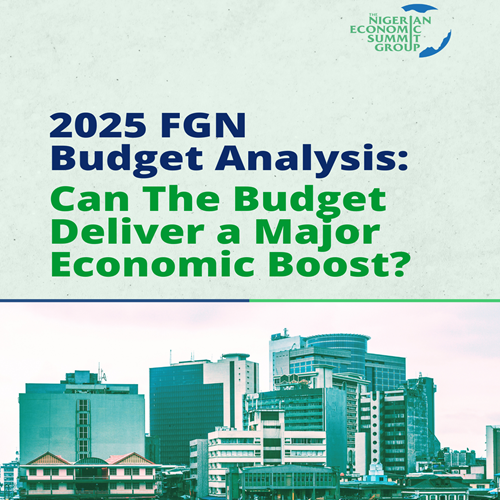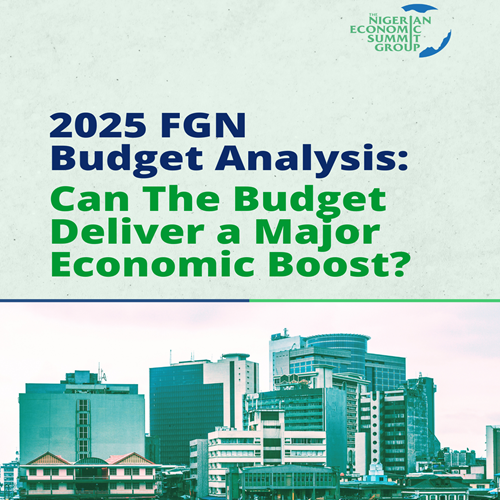Posted Wed, May 27, 2020 7:26 AM
NESG holds Annual General Meeting

The Nigerian Economic Summit Group (NESG) held it's Annual General Meeting (AGM) on Tuesday, the 19th of May, 2020 to review the year ended December 31st 2019. The meeting which held at the NESG Summit House, Lagos and virtually, was attended by directors and members of the think tank. In line with social distancing, only proxies were physically present while others joined via digital channels.
While conducting the proceedings, the Chairman, Board of Directors, NESG, Mr. Asue Ighodalo thanked all Board Directors and Members for their commitment in the national interest and charged members to remain steadfast, innovative and resilient in these challenging times.
The Board of Directors also took time to discuss several topics currently confronting the Nigerian economy. One of the deliberations at the meeting was the impact of COVID-19 pandemic on key sectors of the economy and the optimal policy response to the current and looming challenges.

The NESG Impact Assessment and Optimal Policy Response Report revealed that with Nigeria, being a major dependent player in the oil market, the country faces a dual challenge of dwindling windfall from oil and economic constriction as global lockdown continues on the back of COVID–19. While the fragility of the economy persists, the oil market impacts the Nigerian economy through its dominant contributions to export earnings, foreign exchange inflows, movement in external reserves and government revenue. From a fiscal point of view, the report iterated that the 2020 budget of the Federal Government was based on US$57 per barrel benchmark, which was later revised to US$25 per barrel. Falling crude prices, in addition to weak export demand, would significantly add pressure on Federal and State governments’ finances. This means that the revenue projections in the revised 2020 budget will be unmet, thereby constraining government’s ability to meet its obligation such as payment of salaries and financing critical social and infrastructure projects in the year.
Furthermore, according to the NESG report released to the general public shortly after the annual general meeting, the combined impact of economic shocks from COVID-19 is expected to disrupt general sectoral activities. While the impact is transmitted to the economic sectors through changes in aggregate demand, constrained capacity utilisation and falling capital accumulation, government’s responses will play a significant role in dampening these impacts. At the end of the COVID-19 pandemic, Nigeria’s unemployment and fragile economic growth problems would have worsened. It is, therefore, pertinent that the government develop a framework to achieve rapid economic growth and employment generation. In doing this, the government must prioritise sectors that have significant potential for growth; sectors that can meet the demand of consumers both at the local and export market and have the capacity to absorb a significant number of the country’s labour force the NESG impact assessment and optimal policy response report revealed.

The NESG board posited that the government needs to address key challenges to growth and job creation of a number of sectors including manufacturing, construction, education, health & social services, professional, scientific and technical services sectors; as they can be used as a launchpad for economic recovery post-COVID-19. The NESG recommended a number of sector-specific points including establishing production safety nets for the agricultural sector through sustaining the supply of seeds and planting materials to smallholder farmers by the government; expanding the refining capacity of the local industry, tapping into huge refined petroleum products market in the ECOWAS region and deregulating the downstream of the oil and gas sector. Furthermore, other recommendations include easing the regulatory compliance for players in the telecommunications sector; reduction of import tariffs on COVID-19 related medical goods and intensifying the development of the off-grid segment of the power and utilities sector’s value chain.
Find a blog post
Latest Releases

2025 FGN Budget Analysis: Can Th .. Read
2 days ago

2025 FGN Budget Analysis: Can Th .. Read
2 days ago
_1745876187.png)
Industrial Policy Commission Gen .. Read
2 weeks from now
